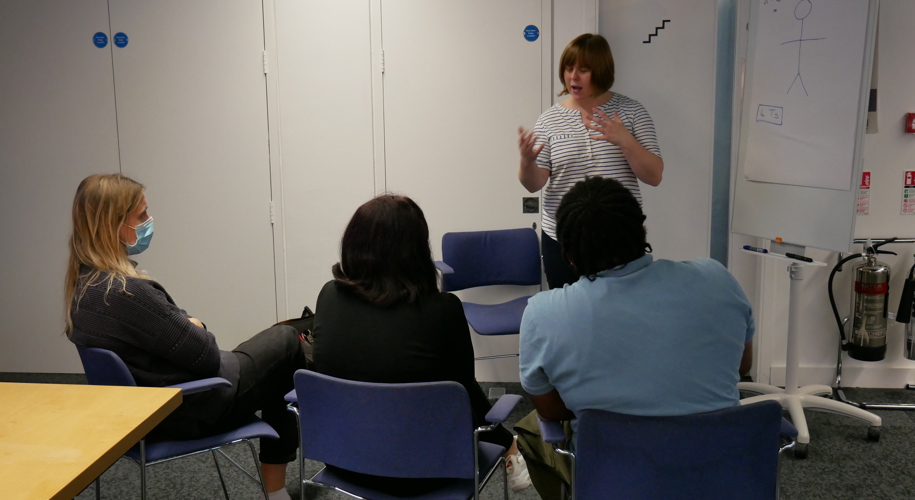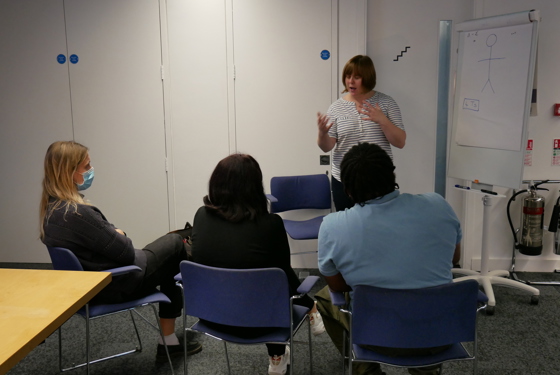Frequently asked questions (FAQs) about the training evaluation form (TEF).
Your completed TEFs provide important information to your head of school, trainee representative and the College about your O&G training. Both the Specialty Education Advisory Committee (the most senior College committee dealing with training) and the Trainees’ Committee have agreed that the TEF is not only a useful source of information for the deaneries, but also necessary for understanding where there are problems as well as good practice.
TEF data enables a more proactive approach to monitoring the quality of training, by triangulating with other data and by working with other departments to come to an overall view about a department or unit, which will be good for patient safety. The TEF data as supplied to deaneries will assist with their quality management arrangements, by providing an additional source of information that can be used to triangulate with other data sources such as the GMC Trainee Survey. It is expected that TEF data will be also be used by representative trainee committees.
In recognition of the importance that the College attaches to trainee feedback, completion of the TEF on the ePortfolio is a requirement in the training matrix of educational progression.
There are two occasions when you will need to do the TEF – the main annual survey run by the RCOG and if you are asked locally to complete an interim TEF for the purposes of deanery quality assurance. You will be notified by the RCOG when the annual survey is available to complete via email. To ensure you receive these communications please make sure your email address on the Training ePortfolio is up to date and that you haven’t opted out to receive communications from the College.
We understand that respondents may feel that the questions presented are restrictive or do not fully capture the nuances of the circumstances in their training environment. However, we use the multi-choice responses to calculate outcomes for a number of key indicators. These indicators tell us how each department is doing in specific areas of O&G training.
Due to the number of responses, it would be impractical to analyse the volume of comments that would be generated if we allowed free text for each theme. This would require each comment to be read and categorised by a team of people, and ultimately, the outcome would be that to generate a meaningful survey result, we would choose categories similar to the multi-choice questions that we currently present.
The multi-choice questions presented in the survey have been tested with doctors in training in O&G and represent a standardised way of capturing perceptions of the training environment in a manner that is applicable to the maximum number of training permutations. You can read more about how we calculate survey results below.
If you have an issue with your training that you want to raise and feel that questions presented in the survey do not fully allow you to do that, you can raise the matter separately with your local educational supervisor, college tutor or Workplace Behaviour Champion.
Please email the Education team and they will send you a link to the survey if you are eligible to participate.
Please email the Education team. They will check that you completed the survey and issue a replacement certificate once verified.
Your answers to multiple choice questions about your training are anonymised. We aggregate reports where possible to help ensure no individual response can be identified. Only the RCOG ePortfolio Manager and TEF data analyst will have access to your completed form in its entirety.
In terms of any comments you wish to make, these will be shared verbatim with the RCOG Workplace Behaviours Advisor, trainee representatives, Heads of School and Postgraduate Dean. We won’t share your identity as standard procedure, but we will provide your training location. However, if it becomes necessary to an investigation, with the agreement of the Vice President (Education), we will ask your permission to share your identity with your deanery.
If your comments become relevant to a fitness to practise investigation (in relation to another doctor, or to yourself) then we will share your comments with the GMC’s Fitness to Practise Directorate and you may be asked to assist the investigation. You should be aware that if a doctor acts dishonestly or in bad faith in raising concerns with us through the survey, then this can lead to fitness to practise proceedings being taken against that doctor.
It is important to note that the TEF is a training survey and not the correct path for raising concerns about patient safety. If you have a concern about patient safety please see the GMC guidance Raising and acting on concerns about patient safety.
If you do raise a concern about bullying/undermining, it is important that you do so honestly, and in good faith.
If a doctor acts dishonestly or in bad faith in raising concerns with us through the survey, then this can lead to fitness to practise proceedings being taken against that doctor. Where there are grounds to believe that a doctor has acted in this way, then information provided in answer to the survey may be shared with persons involved in the investigation of fitness to practise concerns, including the GMC’s Fitness to Practise Directorate.
Your completed TEFs will be held on a restricted drive on the College’s secure IT system. Your confidentiality is protected by the the Data Protection notice published on our website.
Your responses to multi-choice questions about your training will not be used for anything other than reports about medical education and training.
If you raise a concern about bullying and undermining, then your concern will be investigated as described elsewhere. If you raise a concern dishonestly or in bad faith then that concern may lead to an investigation into your fitness to practise.
We share your comment as well as your training site with your Head of School and Postgraduate Dean. It will be up to your deanery to decide how to investigate the comment with your LEP. We do not share your identity as standard procedure, although we do provide your training location. However, your deanery may ask for it to help their investigations. Should they ask, we will ask you for your permission, with the agreement of the Vice President (Education) before sharing your identity.
It is important to note that the TEF is a training survey and not the correct path for raising concerns about patient safety. If you have a concern about patient safety please see the GMC guidance "Raising and acting on concerns about patient safety".


Curriculum
The complete specialty training curriculum for O&G – core, ultrasound, ATSMs, subspecialty and academic


MRCOG exams
Information on how to prepare for the Part 1 and Part 2 MRCOG
